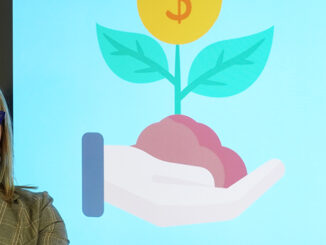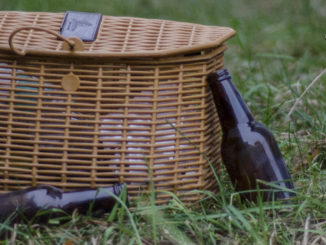‘The people want to do it. No one wants to throw out food’

Ashley Sheppard
Kicker
Newfoundland is known for being a late adopter of innovative technology and infrastructure that has already surfaced and made societal strides in most of North America.
This behaviour has proven to our detriment, says Bridges to Hope manager Jody Williams – especially when it comes to laws preventing the waste of food.
Williams says the public is open to innovation in preventing food waste.
“No one wants to throw out food,” said Williams.
But many Newfoundlanders and Labradorians do just that.
There is plenty of blame to go around. Consumers are the number one culprit for throwing out food. Many business and government institutions throw out a lot of food after banquets and receptions.
In other parts of the world, companies and non-profits are innovating to find solutions. In the United States, for example, one company has set up an app to connect prospective donors with food banks and soup kitchens.
California-based Copia and its founder, Komal Ahmad, hope to solve what she calls, “the world’s dumbest problem.”
Copia makes food more accessible to those in need by partnering with businesses and helping them redistribute unused, high-quality food that would normally be constituted as waste. Both businesses and nonprofits can connect through the app, so that a business’s surplus food can be delivered to the recipient by a driver.
The process seems simple, and is simple, for all major cities in the U.S. that have had access to this app since Copia formed a partnership in 2018 with Doordash – an on-demand courier service operating in the U.S. and some parts of Canada.
Since Copia joined forces with Doordash, cities in Canada that have Doordash services, can avail of Copia. Those cities are Calgary, Edmonton, Ottawa, Toronto and Vancouver.
“The way we have been approaching it is: Wherever there’s interest, in terms of larger partners, we can expand to their location,” said Kelsey Galles, part of the Copia team.. “We’ve been focusing primarily in the United States, but now that we have this partnership with Doordash, we can expand outside of the United States into Canada as well.”
Logistics
According to Bridges of Hope’s Jody Williams, much of the food that is wasted in Newfoundland could easily feed those who go hungry. But, he says, the current laws make individuals and businesses fear they will be held liable if the food they donate causes someone to be ill.
Section D – 26.1 of the Provincial Donation of Food Act states a person donating food is not liable for damages caused by the food donations, unless the food was adulterated, rotten or otherwise unfit for human consumption. If the person donating or distributing the food intended to injure or to cause the death of the recipient of the food, or acted in reckless disregard, they would also be held liable.
Not many people are willing to take the risk of donating unused food with the potential threat of having a lawsuit against them. Williams, however, is taking food waste into his own hands and isn’t so worried about the repercussions.
Williams says he recently partnered with Centerplate, the St. John’s Convention Centre’s exclusive food provider. Centerplate is a part of food-rescue program in which unused food from events they cater at the convention centre will be brought to the Bridges to Hope Food Aid Centre.
“We think it’s the right thing to do,” said Williams. “We don’t want to waste food.”
Centerplate’s team flash freezes the leftovers, and Williams picks them up and delivers them back to his food bank’s freezer. So far, Bridges to Hope has used this method once, and it worked. Having walk-in freezers has made it easier for Bridges to Hope to adopt the flash-freeze method. Not every charity has the same capacity.
Another factor is the level of training at Bridges to Hope.
“We’re trained chefs, and the danger becomes great when it’s not trained chefs,” said Williams. “The intention could be great, but someone could get hurt if things are not dealt with properly.”
By essentially eliminating the possibility of spoiled food, says Williams, Bridges to Hope can distribute the donated food without worry of making someone sick.
The shortage of nonprofits with walk-in freezers and other important resources are among the reasons Williams doesn’t expect Copia to work efficiently in Newfoundland any time soon.
Future in Food Waste
Williams expects government will recognize the lack of means to rescue food as a problem and to provide more funding to food banks so they can have the tools necessary to make programs like Copia work here.
“These are the problems that are going to come up,” said Williams. “They’re all solvable, but they’re not solvable by the food banks. Food banks have no money. It comes back to government – the government loosening up the rules and then government having grants to allow this to happen.”
Copia has been able to work efficiently in the U.S. thanks in part to the food donation laws there and also to Copia’s own policies.
“In the United States, food donors, specifically businesses, are protected by the Emerson Good Samaritan Act, which is the federal protection that protects companies from liability should someone get sick from a food donation,” said Galles. “And then we also carry an insurance policy for all of our customers. If somebody does get sick, Copia would take the blame.”
There’s still hope for Newfoundland, though.
“Eventually Copia would like to be in every major city across the globe,” said Galles “But right now, that’s a little further out of the picture.”
Correction: Due to an editing error, a previous version of this story suggested Bridges to Hope manager Jody Williams did not expect government to recognize a lack of resources as an impediment to using a service such as Copia. In fact, Williams said he expected government to recognize the problem.




Be the first to comment